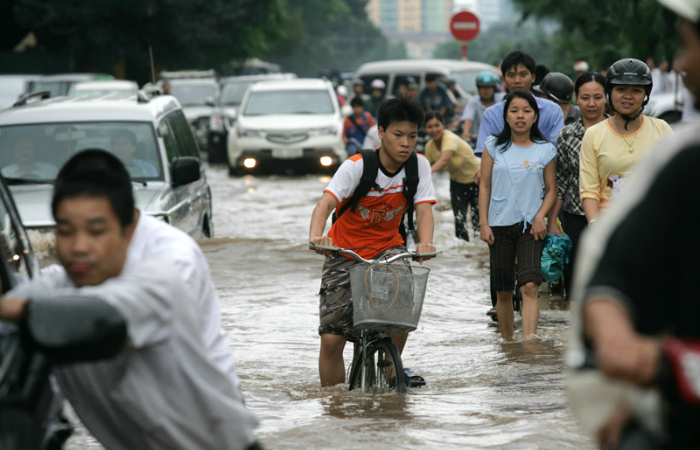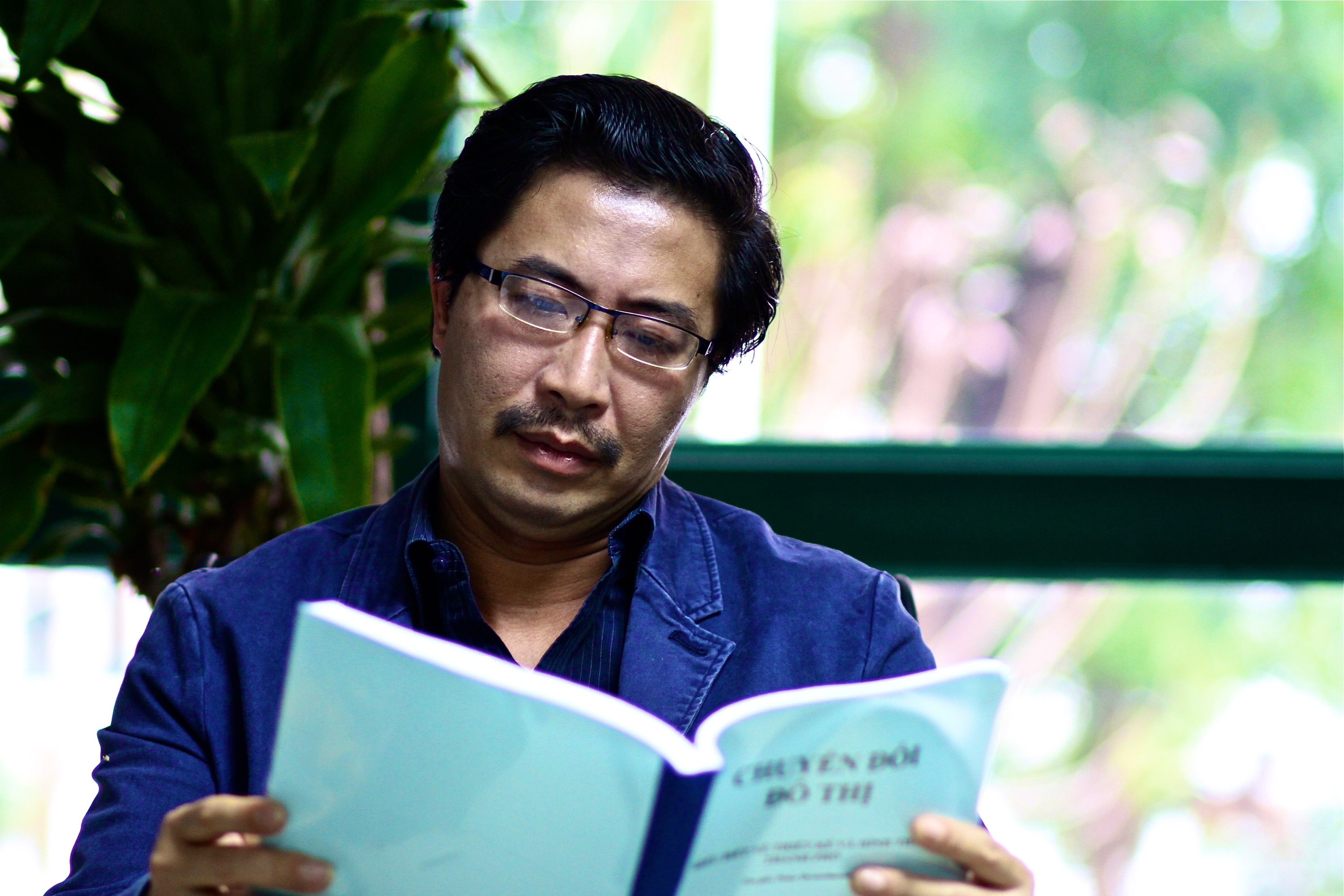Five years ago, Professor Luu Duc Cuong’s career took a significant turn. His moment of clarity – the proverbial lightning bolt – occurred in a non-descript public library.
It was 2011 and the Inter-governmental Panel on Climate Change had just released a landmark report on extreme weather and climate change. Cuong chanced upon the news on online and noted that Vietnam was named as one of the top five countries to be most affected by climate change.
“I immediately went to a local library, borrowed the full report and read it…this is the first time I paid attention to climate change in context of Vietnam.”
Over the five years since that day, Cuong has shifted his focus from environmental planning to climate change and, more specifically, generating research on climate risk and resilience in Vietnam.
Cuong believes that policy interest begins with evidence. The Vietnam Institute for Urban and Rural Planning where he is the Deputy Director, is a think tank institute affiliated with the government, and according to him, best placed to generate this evidence.
“My role is to inform the government about important issues that they need to notice and deal with.”
He started by submitting a proposal to the Ministry of Construction to study the impacts on climate change on coastal cities in the country. Cuong says, “Back then, ours was the very first study on the topic of climate change and urban-rural planning in Vietnam… Before we did the study, when local authorities reviewed urban plans, they never paid attention to climate change.”
It took the Vietnamese government over a year to sit up and take notice, aided in no small measure by the increasing frequency of extreme events. There have been several instances of heavy flooding in Vietnam over the last 4 years. For instance heavy rains and severe floods in 2015 in Quang Ninh province in Northern Vietnam were seen as the worst in the past 40 years, with rainfall of about 1,500mm received in a period of nine days. Cuong recalls, “It is a coastal province and a national heritage site. The whole place was under water and the provincial government took us very seriously.”
Cuong first heard of the ACCCRN project in a workshop in Hanoi, organised by The Rockefeller.
We must focus on changing policy at the local and the national scale in order to build resilience." - Luu Duc Cuong
“My comment to them was to focus on policy changes at the local and national level. There are so many cities in Vietnam. The (ACCCRN) program cannot cover 800 cities. Provide support to some cities, but also support the national government through recommendations for national policy.”
Rockefeller, took his advice on board, and as part of ACCCRN, Cuong was able to develop technical guidelines on urban climate resilience for the national and provincial governments. Cuong’s research before ACCCRN was focussed on select aspects of climate change such as impacts on infrastructure, integration with environmental assessments etc. With ACCCRN his line of enquiry become broader.

Cuong’s efforts have had some measure of success because part of his job has been to provide training to local authorities, making them aware of the policy repercussions of his research. He has also been tasked to review current urban planning policies and see if plans developed by the local authorities incorporate climate change. He is therefore striving to build government capacity on one hand, and on the other, examine whether existing policies have been climate proofed.
Cuong feels that there are still challenges to overcome. Firstly, Vietnam has a top down governance system and until there is clear legislation on climate resilience, lower levels may not address climate change effectively.
Very few officers in government know enough about climate change.” - Luu Duc Cuong
Secondly, while city authorities and leaders are aware of climate change and its impacts, leaders do not see climate change as top priority. “Priorities like poverty, sanitation and water supply" take precedence in a developing country like Vietnam, according to Cuong. Finally, there is a challenge of inadequate capacity. Very few officers outside the ministry of construction, he says, know enough about climate change.
Born and raised in Hanoi, Cuong is a city-man and realizes how urban planning can effectively address climate change. “Cities contribute 70% of GHG emissions. Climate impacts are more severe in rural areas. Vietnam is urbanizing at the rate of 30%.
“I feel the need to inform people and the government.”
He believes his work has been possible because of his tendency to lead and mentor others. There have been challenges.
“I was very young when I was made boss. I had just come back from my Phd. At the time, most of staff was older than me. I needed to first convince them. It took me a year to convince them through my work.”
Cuong notes that government institutions in Vietnam have been historically hierarchical and he has had to gradually work around it. Cuong credits his time as a Phd student in Canada as equipping him with a different mindset. He says, he encourages his staff to share their opinions. “Only if the younger generation speak up will they be able to convince their seniors about the importance of issues like climate change.”
Recommended reading by Luu Duc Cuong: Guidance for Integrating Climate Change Considerations into the Sea of Urban and Construction Plans in Vietnam
In this detailed study Luu Duc Cuong and his co-authors provide comprehensive guidance about how to integrate climate change into decision making processes in cities in Vietnam. The report holds many transferable lessons for urban planners and decision makers, highlighting the challenges and solutions to effective climate change resilience building in instances where complex governance models already exist.






